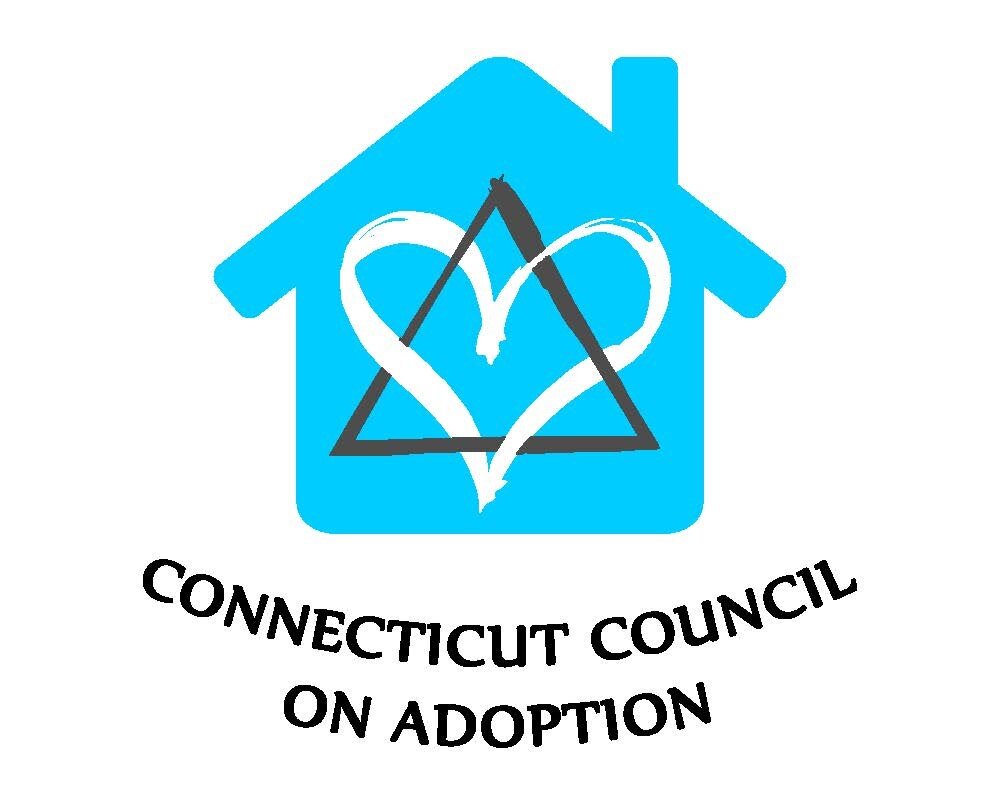About the Connecticut Council on Adoption
We are a not-for-profit, 501c3, voluntary organization dedicated to permanence for children and ethical, effective adoption practices in the state of Connecticut.
For over 40 years we have served as a resource and as advocates to all of those who are touched by adoption. We welcome adoptive families, birth families, adoptees and adoption professionals, and agencies working with adoptive families as members. Please consider joining us as we work toward our common goals.
Individual membership is $20 per year and affords the member to voting rights, reduced fees for our yearly training, as well as our newsletter. Agency membership has a few additional perks, including visibility on our website.
Our Mission
CCA's mission is to support and promote the goal of permanence for children. The organization's primary focus shall be on the quality and effectivenes of adoption practices. The rights and responsibilities of birth parents, adoptive parents, adoptees, public officials, social workers and other professionals working with children, and foster parents will be considered in the organization's efforts to improve adoption services.
Our History
The Council was formed in 1976 by a group of persons involved with child-placing practices in Connecticut including Probate Judges, social workers, adoptive parents and birth parents. The Department of Children and Families, Open Door Society (adoptive parents’ organization), and the private child-placing agencies worked to form a coalition that would serve the needs of Connecticut’s Children. This group obtained non-profit status, with the help of Judge Glenn Knierim. Early in their formation, a member wrote the application for a federal grant to train mental health professionals on adoption issues for special needs children. Many trainings were arranged under this grant. The North American Council on Adoptable Children became interested in the booklets CCA created to help professionals in their work; NACAC helped to distribute these booklets nationally, especially a booklet especially created for mental health professionals.
The coalition continued to include probate judges, adoption therapists, mental health professionals, and parents. The public agency, now called Department of Children and Families, partnered with CCA to provide the adoption trainings for the Department; for several years, the DCF training academy and CCA worked closely together.
Other than actual trainings and booklets, CCA became involved in advocacy issues around adoption issues. One early issue was the advocacy for father’s rights in the adoption process. Paternity issues had not been considered in the infant adoption process, and there was concern that adoptions could be brought into question in the future. CCA was instrumental in protecting the rights of the father when a child was relinquished in adoption proceedings.
Another advocacy issue tackled by an ad hoc committee of CCA was a proposal of identified adoption regulations. Members worked tirelessly to include the needs of birth parents and adoptive parents in identified adoptions. CCA still monitors the regulations and has pushed for updates in them.
CCA has been actively involved in the change in law to allow adult adoptees to have access to their original birth certificates. The shift from secrecy in adoption to more openness has shown to be healthier. Adoptees also suffered when they were unable to get medical history information. The Search Committee of CCA worked for many years trying to introduce legislation. When the grassroots effort called Access CT grew, CCA joined forces and a partial law was passed in 2015 allowing adoptees whose adoption occurred after October 1983 to request a copy of their original birth certificate. Access CT has a lobbyist working to extend the law to cover all adoptees.
In more recent years, private child-placing agencies have raised concerns to CCA, and the coalition is able to resolve issues with Probate court. One issue was a concern that two Probate Courts were questioning every Termination of Parental Rights by the private Child Placing Agencies, and they were requesting DCF studies in every case. Since this was a duplication of services in most instances, and it took away the birth parents’ rights to choose their agency, CCA requested that the Probate Administration intervene. A conference was held with the Judges and the CPA professionals to resolve the concerns. Another issue was raised by CPA’s that they were having difficulty obtaining the child’s birth certificate for TPR petition; by contacts with the Department of Public Health and the representatives from the CPA’s, it was determined that a statewide form for the birth parent release of the birth certificate should be developed so that all town clerks would recognize this form.
CCA has participated in other coalitions over the years, and the CT Council on Adoption has continued. Many organizations concentrate on one stage of the adoption process, while CCA is concerned with adoption ethics and practices throughout the adoption process. From the start of CCA, the group obtained non-profit status. Throughout the years, the group has continued with a volunteer membership, and in recent years, the non-profit requirements changed to require regular registrations with the government. The status was interrupted for a few years, but in 2014 CCA was able to renew the non-profit status. CCA has always had By-Laws and is established as a corporation.
Today, the Council averages 100 members each year composed of all members of the adoption triad: birth parents, adoptees and adoptive/foster parents, as well as professionals and agencies involved in the field of adoption. The CT Council on Adoption has established a website and is looking to strategically plan the future with some new goals.

